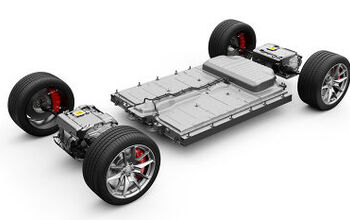EPA Sets Lower 2013 Cellulosic Ethanol Use Requirement
Earlier this week, the Environmental Protection Agency put in place 2013 requirements for cellulosic ethanol for automotive use in the United States at 810,000 gallons, an amount far short of the 1 billion gallons Congress desired seven years earlier when the Renewable Fuel Standard Act came into force.
The Detroit News reports production of the fuel has fallen short of expectations, prompting the agency to set required production for 2013 to what was actually produced “due to the reduced estimate of anticipated cellulosic biofuel production in 2013 that was announced shortly after EPA signed its final rule by one of two companies expected to produce cellulosic biofuel in 2013.”
The reduction comes on the heels of a ruling by the U.S. Court of Appeals in favor of the American Petroleum Institute, stating the EPA had overstepped its authority by mandating refiners buy more fuel — 17 million gallons for this year alone — than what was produced. API official Bob Greco applauded the decision, calling upon the agency to base future mandates on reality instead of prognostication:
EPA should base its cellulosic mandates on actual production rather than projections that — year after year — have fallen far short of reality. For four years running, biofuel producers have promised high cellulosic ethanol production that hasn’t happened. EPA must also reconsider its unrealistic proposal to mandate 17 million gallons of cellulosic biofuels for 2014.
Despite lower production numbers and delays in bringing ethanol refineries online, the Obama administration is pushing ahead with the RFS, which requires 21 billion gallons of biofuel — including 16 billion gallons of cellulosic ethanol — to be in use annually as a way to wean the nation’s dependency on foreign oil resources.
Seattle-based writer, blogger, and photographer for many a publication. Born in Louisville. Raised in Kansas. Where I lay my head is home.
More by Cameron Aubernon
Latest Car Reviews
Read moreLatest Product Reviews
Read moreRecent Comments
- Ajla Both parties are in favor of banning Chinese vehicles so I don't see how it won't happen in the next year.
- Add Lightness I don't waste a lot of time watching nothing much happening by watching the YouTube 6 minute highlights.
- MrIcky from my rental fleet experience, id rather drive one of these than a camry.
- Add Lightness Protectionist fear competition under the guise of paranoia.
- Kjhkjlhkjhkljh kljhjkhjklhkjh But facebook, instagram, twitter, your cell phone, your chevy/ford/dodge, your debit card, your credit card selling your data to the SAME OVERSEAS DATABROKERS is ok.Meanwhile parler, telegram literally run on russian hardware is also ''ok''


































Comments
Join the conversation
I actually wonder if we will see this with CAFE standards eventually. When the goal is set impossibly high, and people don't want to buy a Golf sized car with a million fuel saving doo-dads attached that cost $60k and break at 50k miles, maybe the epa will back off. Unfortunately by that time how many billions or trillions of wasted dollars will have been lost, or companies that have gone under chasing uneconomic goals? Maybe it won't matter because we will just make the public pay for it... Or just print the money?
I don't really mind incentives for cellulosic ethanol. I do have a problem with ethanol from corn. I'm a bit surprised no one has mentioned the fight over E15. I personally believe that isn't about emissions/pollution, but rather an outlet to dump more ethanol into the market. Mandates for making & using more ethanol mean it has to go somewhere, and since E85 hasn't caught on, E15 would be that channel. Regardless of mandates, I strongly believe that the regions that produce ethanol should be the primary markets for it, e.g., use it for farm machinery. (Another example is Coors. They use non-food grade, waste grain products to make ethanol. They--and their neighbors--should acquire equipment that runs specifically on that ethanol.) I believe if E85 is going to exist, it should be used in high compression ratio engines designed to run on only that fuel instead of being flex fuel. Concentrating its use would better justify manufacturing such engines. If people believe ethanol can be a significant part of our energy portfolio, then demonstrate it locally rather than across the whole nation.